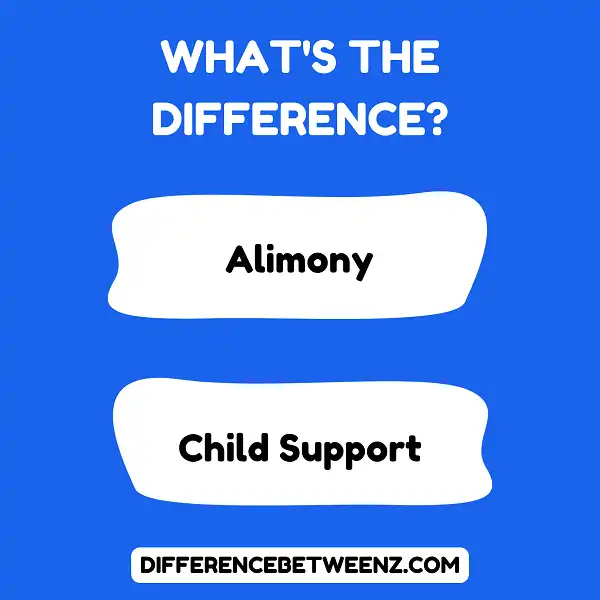Divorce can be a complicated and messy process for all parties involved, especially when it comes to navigating the financial obligations that arise. Two of the most common issues during divorce proceedings are alimony and child support. Often, people use these two terms interchangeably or assume they mean the same thing because they are related to one another. However, there is an important difference between alimony and child support—and understanding this distinction can help couples who are going through or expecting to proceed with a divorce settlement make informed decisions about their finances moving forward. In this blog post, we will explore how alimony and child support differ along with what factors affect how much money is awarded in each case.
What is Alimony?
- Alimony is often a contentious issue for divorced couples, and it can be difficult to understand what it actually is. Alimony is a payment made from one former spouse to the other, usually monthly, and typically lasts for a certain period of time determined by the court.
- It typically reflects a balance between the former spouses’ salaries, incomes, and abilities to support themselves post-divorce. Alimony is designed to alleviate any financial hardships one of the former spouses may face as they start their new life.
- Alimony recipients are typically able to continue their pre-divorce lifestyle when they have access to alimony payments while payers can generally receive tax benefits on alimony payments made in certain circumstances. With such financial stakes associated with alimony, it’s important for both parties involved in a divorce to understand Alimony’s implications.
What is Child Support?
Child Support is a payment made by a parent to the other parent or guardian responsible for the care of their child, in order to contribute financially toward the cost of raising them.
- Child Support can be set up via court orders, voluntary agreements outside of court, or through administrative programs like Child Maintenance Service in some countries.
- Child Support payments are typically set up to ensure that the custodial parent has enough money to provide for their child’s needs such as proper housing, food, and clothing.
- Child Support payments can either be a single lump sum or ongoing periodic payments, depending on the situation. Child Support is an important part of caring for any individual’s children and is essential for providing stability and financial security for both the parent and their children.
Difference Between Alimony and Child Support
Alimony and child support are two separate legal payments that can be ordered during a divorce settlement in the United States.
- Alimony, also known as spousal support or spouse maintenance, is payment from one former spouse to another for the purpose of financially supporting them after a divorce.
- Alimony must be agreed upon between both parties or a judge must intervene to provide an agreement. Meanwhile, child support is a payment from one parent to another to assist in enabling the other parent to take care of the children financially.
- The court will determine the amount and frequency of child support payments based on such factors as the number of children, their ages, and the income levels of both parents.
Alimony and child support are distinct types of payments with specific criteria; however, they both serve similar purposes: ensuring that both former spouses, as well as any dependents involved in a divorce, receive adequate financial assistance going forward.
Conclusion
Alimony and child support both falls under the umbrella of family law. The main difference between the two is that alimony is paid by one spouse to another after a divorce, while child support is paid by either parent to help with the financial needs of raising a child. Child support is usually calculated based on factors such as each parent’s income, the number of children, and custody arrangement.
Alimony, on the other hand, may be awarded based on need or other factors such as length of marriage or standard of living during the marriage. Although they are similar in some ways, understanding the key differences between alimony and child support can help you navigate these complex legal issues.


